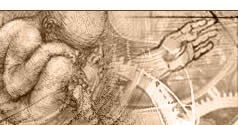 |
 |
 |
 |
 |
 |
 |
 |
|
 |
 |
 |
45 Radioactive decay at plasma temperatures
|
| Menu | back |
When known radioactive materials are heated up to plasma temperatures, the half-life of elements such as uranium 238 decreases from 4.5 billion years to 2.08 minutes. This circumstance represents another uncertain factor for radiometric age determination.
Plasma temperatures normally do not occur. Anyway, this demonstrates that radiometric decay times are not constant.
If a solid substance is heated, most elements first become liquid and then gaseous after reaching a certain temperature. If this gas is heated even further, it turns to plasma at extremely high temperatures. This plasma then has characteristics completely different from the gas from which it originated. Among other factors, the half-life of radioactive isotopes is reduced dramatically. The higher the temperature, the greater the reduction in half-life.
If the following materials are heated up to 15.4 billion degrees Kelvin, the half-life changes as follows (1) (2).
|
Uranium 238
|
decreases from
|
4.5
|
billion years to
|
2.08
|
minutes
|
Thorium 232
|
" " |
14
|
" " " |
15.6
|
" |
Samarium 147
|
" " |
106
|
" " " |
1.56
|
" |
Rubidium 87
|
" " |
47
|
" " " |
2.46
|
" |
Potassium 40
|
" " |
1.2
|
" " " |
5.87
|
" |
These 46 | Menu |
back
|
References:
|
| (1) |
Edward Boudraux, Attenuation of accelerated decay rates by magnetic effects, Proceedings of the Cosmology Conference 2003, Ohio State University, Columbus, Ohio. |
| (2) |
Edward Boudraux, Accelerated Radioactive Decay Rates, a Minimal Quantitative Model, Proceedings of the Cosmology Conference 2003, Ohio State University, Columbus, Ohio. | |
| |
Comment this Site!
Petr Dolezel wrote:
I would like to ask you a few questions about this article if you please.
1) If the values above will lineary decrease the radioactive decay according to temperature, than the half-life for magma (about 1200°C) wouldn't be affected at all. It will decre
|
 |
 |
 |
 |
|

